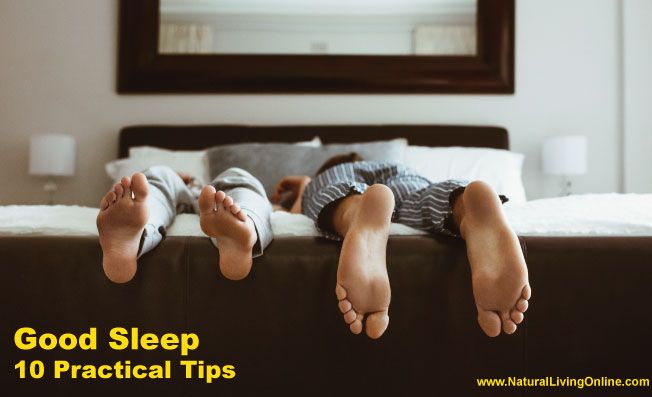Sleep is an essential part of life. It helps us to rest, restore and regenerate the energy we need to take on the day ahead. Poor sleep can be detrimental to your health, leaving you feeling tired and unable to think clearly or stay focused throughout the day.
Good quality sleep is essential for physical health and mental wellbeing. It helps to boost the immune system, repair muscle tissue, regulate hormones, and even helps to improve cognitive functioning. Sleep also provides a much-needed break from daily stressors and helps to manage emotional reactions and promotes mental clarity.
Most adults need at least 7-8 hours of sleep a night. It’s important to find the amount of sleep that works best for you, as everyone is different. Some people can function well on 6 hours, while others may require 9 or more hours to feel their best during the day.
According to the Centers for Disease Control and Prevention (CDC), 1 in 3 adults are not getting enough sleep. It is estimated that more than 40 million Americans suffer from some kind of sleeping disorder, with insomnia being the most common problem.
If you’re having difficulty falling asleep or staying asleep throughout the night, here are 10 practical tips to help improve your sleep quality:
1. Sleep schedule
Develop a consistent sleep schedule. Go to bed and wake up at the same time each day, even on weekends. This helps to regulate your body’s circadian rhythm, which is responsible for telling your body when it’s time to sleep and wake up.
2. Pay attention to your diet
Avoid caffeine and sugary foods before bedtime. Eating a light, healthy snack in the evening can also help to promote sleep.
3. Restful environment
Create a restful sleep environment by reducing noise, light and temperature. Use dark curtains to block out light, use a white-noise machine or an air purifier to reduce noise levels, and set the thermostat to a comfortable level for sleeping.
4. Limit daytime naps
If possible, limit daytime naps to 20 minutes or less. Longer naps can disrupt your sleep schedule and make it harder to fall asleep at night.
5. Include physical activity in your daily routine
Regular exercise during the day helps to tire out the body and reduce stress levels, which makes it easier to fall asleep at night.
6. Clear your mind of worries and quit thinking
Before bedtime, spend a few minutes journaling or meditating to help clear your mind of the day’s events and worries. This helps to reduce stress levels, which can interfere with sleep.
7. Reduce Electronic Use Before Bed
Electronics like TVs, phones and tablets emit blue light which can interfere with your body’s natural sleep/wake cycle. Turn off all electronics at least an hour before bed.
8. Things to do to relax body and mind
Read a book, listen to calming music or do some yoga poses before bedtime. These activities help to relax the body and mind so that you can drift off to sleep more easily. A warm body soak or foot soak is also a great way to relax the body and reduce stress levels before bed.
9. Use of Aromatherapy for good sleep
Using essential oils such as lavender, chamomile or ylang-ylang can help to relax the body and mind which makes it easier to fall asleep. Mix a few drops of essential oil with a carrier oil, like jojoba or coconut oil, and massage your neck and shoulders before bedtime. You can also use an aromatherapy diffuser to fill the room with calming scents.
10. Herbal Teas that can help
Herbal teas like chamomile, lemon balm or valerian root can also help to promote sleep. The soothing effects of the tea combined with the warmth of the cup can be very calming and help to reduce stress levels so that you can drift off to sleep more easily.
If you are still having difficulty trying to improve your sleep quality with these tips, it might be time to contact your doctor. They may want to do tests or prescribe medications to help you get the restful sleep you need. Additionally, if you are experiencing any of the following symptoms, it is best to consult a medical professional:
• Daytime sleepiness
• Difficulty falling asleep or staying asleep
• Waking up multiple times during the night
• Extreme fatigue during the day, despite getting enough hours of sleep.
At the end of the day, improving your sleep quality comes down to making changes in your lifestyle and habits. While some people may need further help to get the restful night’s sleep they need, these 10 practical tips are a great place to start. With a bit of effort and dedication, you can have a better sleep quality in no time!
This website does not provide medical advice.
All information provided on this website, and on associated social media networks, including but not limited to texts, images, and numbers are for general information purpose only. It is not intended as medical advice and it does not include all possible precautions, side effects, or interactions that may occur. Neither NaturalLivingOnline.com nor its author/founder take responsibility for how you use this information. Statements contained on NaturalLivingOnline.com have not been evaluated by the FDA. You should conduct thorough research via multiple sources and consult your physician or qualified doctor before using any essential oil or herbal remedy. Information on NaturalLivingOnline.com must not be relied upon for medical, legal, financial or other decisions.











